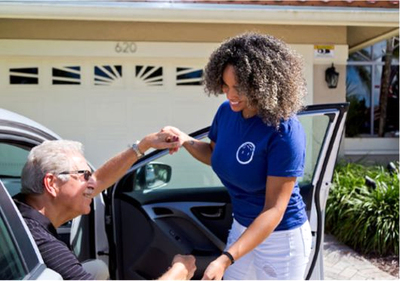Helping Aging Family Members Who Should Stop Driving
 |
By Andrew Parker
Founder and CEO of Papa
As we age, so does our vision, reaction time and fine motor skills. All these things are involved in operating a vehicle. As drivers on the road, it’s not only our own safety but also that of other drivers and passengers, that’s our responsibility.
If you have an elderly parent whose ability to drive is starting to make you worry, you’re not alone—it’s a conversation many adult children must eventually face. And it can be difficult, as seniors have a lifetime of driving experience behind them and value the independence offered by driving a car.
Still, when safety is at stake, it’s important to know how to address this topic with your parent or elderly loved one.
Six signs it may be time to hand over the keys
One of the first things you can do is ride along and observe your loved one behind the wheel. Warning signs their driving abilities are declining include the following:
-
1. Becoming easily distracted or agitated behind the wheel.
2. Frequent close calls or near-collisions.
3. Forgetting directions and getting lost in familiar surroundings.
4. Difficulty judging gaps in traffic or following traffic signs.
5. Decreased reaction time for braking, or confusing the brake with the gas pedal.
6. Expressions of fear on the senior’s part, or the senior may limit driving to necessary trips to the store, showing an increased awareness of perceived dangers.
How to talk to someone that needs to stop driving
- • Be gentle, but honest. Your decision is one made out of love and concern. Simply tell your parent or loved one you want them to be happy, but also safe.
• Explain your concern. If you’ve observed questionable driving, it may help to bring up what you saw. Simply state you’re afraid for the safety of your parent, as well as others on the road.
• Involve other family members, if possible. You don’t want your parent to feel you’re “ganging up,” but the concern of multiple people can help you illustrate your point.
• Seek professional help from a physician, counselor or trusted friend. This can provide needed objectivity in looking at all the information available and allow for candid yet caring conversation with the senior driver.
• Request a driving test. This can include an eye exam and ride-along driving check-up. To learn more, contact your local office of motor vehicles. The advice of a professional may help your parent understand what needs to happen next.
• Be patient, but persistent. You may not succeed in the first conversation. But don’t give up. It’s important your loved one understands your concern and hands over the keys.
Once Seniors Have Stopped Driving
A loss of independence can be a devastating blow to an active senior. It is vital to make every effort to maintain the senior’s lifestyle, so they see that their usual activities of church, community, etc. are still possible. Offer help to maintain their independence. If family members are unavailable, elder care services in your area can provide transportation to help your parent get out and about and complete all desired errands.
It is worth exploring ways to give some control to seniors who stop driving by counting to treat him or her as a cherished person. Where possible, show dependence on the senior in another way like spending time together in his or her garden or other interests.
Putting kindness and careful thought into handling this touchy event makes life safer and more pleasant for all involved.
About the Author:
Andrew Parker is the Founder and CEO of Papa, a family on-demand service providing assistance and companionship to older adults and families. For more information, visit joinpapa.com.


